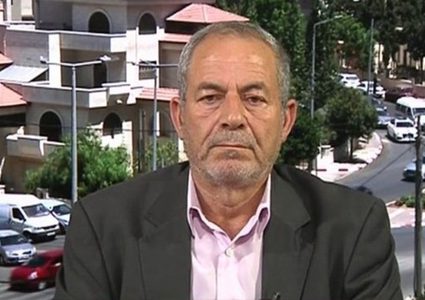LOC09:45
06:45 GMT
 Political analyst Nihad Abu Goush
Political analyst Nihad Abu Goush
By Nojoud Qasem
RAMALLAH, Sept 30 (KUNA) -- The series of international recognitions of the State of Palestine could be viewed as a political triumph by many despite it coming after a long line of atrocities committed by the Israeli occupation for decades, namely in the Gaza Strip in the past nearly two years.
The recognition -- though important -- remains makes difficult to implement on the ground due to numerous challenges especially the Israeli occupation's undeterred annexation of land by illegal settlers in the West Bank, as well as the geographic distance from the war-torn the Gaza Strip.
Basically, the unlawful Israeli occupation's policies are a major challenge facing the establishment of the state of Palestine based on upon the outcomes of the New York Peace conference led by Saudi Arabia and France.
The recognition, sometimes deemed "symbolic" and other times "important", is another step in the long Palestinian struggle for independence, which began from the UN General Assembly through Resolution 181 of 1947, proposing the partition of Mandatory Palestine into two states, one Arab and one Jewish, with Jerusalem placed under international administration. The following year, the so-called "State of Israel" was proclaimed.
Speaking to KUNA, author and political analyst Nabhan Khreisha said that the Palestinian political division, and Washington's carte blanche support of the Israeli occupation policies are threats to the international legitimacy surrounding the issue, but the struggle for the independence is not over.
Through the recent recognitions, some countries tried to send a message to their people who are angered about the atrocities occurring in the Gaza Strip, said Khreisha, who affirmed that continued recognition of Palestine by countries around the world displays a global shift in attitude towards the Israeli occupation's actions and war crimes.
He went on to say that in recent years the Palestinian political discourse has called on the world to move toward real action to save the Palestinian people in both the Gaza Strip and the West Bank.
Khreisha affirmed that recognition in and of itself was not enough; it should be coupled with concrete action on the ground to end the occupation and balance the change the reality on the ground.
Palestinians should unite in light of the recent international pressure on the Israeli occupation, he asserted, saying that it was time to go beyond symbolism and act.
For his part, political analyst Nihad Abu Goush said that the international recognition of Palestine was a positive step, especially from countries that were traditional allies to the Israeli occupation like the UK.
Abu Goush, like Khreisha, said that it was vital to translate international recognition into action on the ground with the Israeli occupation insistence on preventing the birth of the Palestinian state through the usual heinous plans of genocide, displacement, and disregard for human dignity.
The Palestinian analyst also called upon his countrymen to unite and support all political, diplomatic, and popular efforts to realize the dream of Palestine, extending similar calls for the Arab and Muslim worlds.
He called on nations to follow the example set by Spain, which took a series of actions to punish the Israeli occupation for its crimes against Palestinians via preventing aircraft carrying weapons from entering its airspace.
The State of Palestine remains a dream with continued Palestinian struggle for independence that has led, years later, to some 158 from 193 UN members to recognize Palestine -- some 37 years from the Palestinian Declaration of Independence proclaimed in Algiers in 1988, which also earned recognition from 85 countries including Russia and China, both UNSC Permanent Members.
In the 1990s, countries continued to recognize Palestine as a state and in 2012, Palestine gained observer status at the UN with 138 countries voting in favor, nine against, and 41 abstaining.
The war of genocide carried out by the Israeli occupation against the Gaza Strip has pushed several western countries to reconsider their stance on the Palestinian cause especially with Saudi Arabia calling for an "international coalition" to implement the two-state solution in September 2024 and holding a conference in New York in cooperation with France.
On July 30, 2025, France -- an important UNSC member -- and 14 countries expressed their intention to recognize the State of Palestine, calling upon other countries to follow suit.
This step led other major nations, including the UK, Australia, Canada, Portugal, Malta, and others to recognize Palestine. Countries that had previously recognized the State of Palestine include Ireland and Spain, making the majority of the globe standing with the Palestine struggle for statehood. (end)
nq.gta